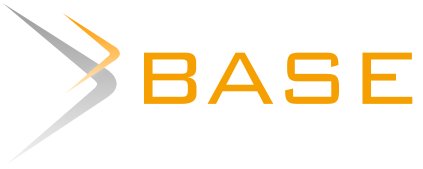Appraisal of the Values of Voter Education in Achieving Sustainable Democracy in Nigeria
DOI:
https://doi.org/10.18034/ajhal.v5i2.335Keywords:
Education, Nigeria, DemocarcyAbstract
Voter education is expected to enthrone sustainable social order in Nigeria’s political scene. Voter apathy works against the principles of democracy. The values of voter education are delineated as follows: encouraging leadership discipline, control of political violence, exposure on the process of election, peace building and maintenance of democratic order. Sustainable democracy can be actualized through voter education in the following ways: extension of voter education, mass mobilization, values to shun violence, stemming corruption and national consciousness sensitization. The consequences of voter apathy are addressed as follows: absence of sustainable democracy, forced leadership, stabilizing illegitimate government, low political participation and political instability. Conclusion was drawn based on the ensuing discoursed and it was recommended amongst others that voter education will encourage mass political participation and the maintenance of sustainable social order.
Downloads
References
Akindele, S.T. (2005). A critical analysis of corruption and its problems in Nigeria. Kamla-RAJ Anthropologist, 7(1), 7-8. DOI: https://doi.org/10.1080/09720073.2005.11890876
Batcheson, M. (2010). Conflict and crises in Nigeria: An appraisal in the proceeding of the national conference of the School of Social Sciences, Alvan Ikoku College of Education, Owerri, 15-17 July.
Ebirim, D.C. & Edi, A.O. (2014). Introduction to Nigeria cultural environment. Owerri: Onyii Nick Prints.
Eboh, R.N. (2015). Government and social order: The study of politics. In S.D. Ediyang (Ed.) Social studies for colleges and universities. Calabar: World Life Publishers.
Ekpeyong, B. & Bisong, M. (2009). Literacy and communication needs for effective reforms in Nigeria. Progessor Bassey Andrah Journal of Cultural Studies 2, 129-134.
Imo, M.O. & Essien, E.E. (2013). Family peace and national development. In S.D. Ediyang, D.I. Mezieobi, D.I. Igba & L. Yaro (Eds.) Current development in social studies education. Lagos: Graphic Frame Publishers.
Mezieobi, D.I. (2015). Voter education in Nigeria. In D.I. Mezieobi, S.A. Mezieobi, S.D. Ediyang & C. Nwanekezi (Eds.) Social studies and human rights education. Enugu: Oshilo Consults.
Mezieobi, D.I., Ogheneakoke, E.C. & Nwalado, E.N. (2015). In D.I. Mezieobi, S.A. Mezieobi, S.D. Ediyang & C. Nwanekezi (Eds.) Social studies and human rights education. Enugu: Oshilo Consults.
Mezieobi, K.A. (2004). Social interaction in Nigeria. In K.A. Mezieobi (Ed.) Concerns and insights in social studies education in Nigeria. Onitsha: Outrite Publishers.
Nwanolue, O.G.B. (2003). Democracy and democratic transitions in Nigeria (1999-2003). Awka: Aboot.
Ogunna, A.E.C. (2003). Dynamics of military and politics in Nigeria. Owerri: Whyte and Whyte Publishers.
Okafor, V.C. (2010). Nation building in Nigeria. Awka: Bammy Prints.
Olugbuiyi, K.O. (2007). Man and his government. Ibadan: Firebrand Publications.
Onyeanusi, O.C. (2016). Democracy and nation building. In D.I. Mezieobi (Ed.) Nigeria amaka: A path to nation building. Enugu: Modern Media Publications.
Transition Monitoring Group (2005). INEC/SECES and Independent Commission: A reform agenda memorandum. Abuja: Global Prints.
Ubi, I.E. (2014). Corruption and national security in Nigeria. In W.P. Akpochafo & D.I. Mezieobi (Eds.) Social studies and national security in Nigeria. Enugu: Oshilo Consults.
Ufiem, T.R. (2016). Challenges of nation-building in Nigeria. In D.I. Mezieobi (Ed.) Nigeria amaka: A path to nation building. Enugu: Modern Media Publications.
--0--















